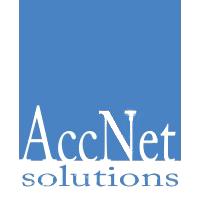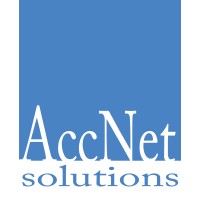As a small business owner, navigating the complex world of taxes can be daunting. However, understanding which expenses you can claim as deductions on your tax return can significantly lighten the financial burden. One of the key advantages of being a small business owner is the ability to deduct various business-related expenses, thereby reducing your overall tax liability.
How can Deductible expenses help my business?
Deductible expenses can help you reduce your taxable income, allowing you to retain more of your hard-earned money. By taking advantage of these deductions, you can minimize your tax obligations and allocate more resources towards the growth and sustainability of your business. However, it’s essential to have a clear understanding of which expenses qualify for deductions and the proper documentation required to substantiate your claims.
In this comprehensive guide, we will explore a range of deductible expenses that can potentially benefit small business owners. From home office expenses and business equipment to travel costs and professional services, we will delve into each category, providing practical examples and insights to help you navigate the tax landscape with confidence.
- Home Office expenses
If you operate your business from a home office, you may be eligible to claim deductions for a portion of your rent or mortgage interest, property taxes, utilities, and home insurance. To qualify, you must have a dedicated space used exclusively for business purposes, and it should be the principal place of your business operations.
Rent or Mortgage Interest: If you operate your business from a rented or owned space, you can deduct a portion of your monthly rent or mortgage interest as a business expense. For instance, if your home office occupies 20% of your total home space, you can deduct 20% of your monthly rent or mortgage interest.
Utilities: Expenses such as electricity, water, heating, and internet costs directly related to your home office are deductible.
Home Insurance and Property Taxes: A portion of your home insurance premiums and property taxes can be claimed as deductions. Similarly, this is based on the percentage of space your home office occupies.
- Business equipment and supplies
You can claim for office supplies such as;
- Stationery
- Printing costs / ink
- Postage
- Phone and internet bills
- Vehicle expenses
If you use a vehicle for business purposes, you can claim deductions for expenses such as fuel, repairs and maintenance, insurance, and even lease or loan payments. It’s important to keep a detailed record of your business-related mileage to accurately calculate your deductible expenses. You have the option of using either the standard mileage rate or actual expenses, or simply consult us to determine the best method for your situation.
Mileage: You can claim on the mileage that has not been reimbursed if you use your own car or a company car for work, up to the HMRC-approved mileage allowance.
You can’t claim tax relief on mileage used commuting between your home and your normal workplace, but you might be able to claim on journeys to a temporary workplace.
You can claim:
- 45p per mile for the first 10,000 miles
- 25p per mile for 10,000 miles and over
- Professional Services
Small business owners often rely on professional services, such as legal and accounting fees, to ensure compliance and efficient operations. These expenses are typically deductible, as they directly relate to the management and administration of your business.
- Advertising and Marketing costs
Promoting your business is essential, and luckily, advertising and marketing expenses can be claimed as deductions. This includes expenses related to website development, online advertising, print advertisements, business cards, and promotional materials.
HMRC will allow you to claim business expenses for:
- Any advertising you’ve done in newspapers or directories
- Bulk mail advertising (or “mailshots”)
- Any costs associated with free samples you’ve produced and distributed
- Website hosting and maintenance costs
- Insurance Premiums
Premiums paid for business insurance, such as liability insurance or property insurance, are generally deductible. These expenses protect your business from unexpected events and can provide you with valuable deductions at tax time.
- Education and Training
Investing in your professional development is important, and fortunately, expenses related to education and training can be claimed as deductions.
Conferences and Workshops: Expenses for attending conferences, workshops, or industry-specific events directly related to your business operations are deductible. This includes registration fees, travel costs, and accommodations.
Professional Courses: Costs associated with courses, seminars, or certifications that enhance your skills and knowledge in your field of business can be claimed as deductions.
- Utilities
Expenses for utilities, such as electricity, heating, and water, directly related to your business location, can be claimed as deductions. Additionally, costs associated with business-related phone services, internet, and other communication expenses are deductible.
Electricity, Heating, and Water: You can deduct the portion of utility expenses that directly relate to your business space. For example, if your home office accounts for 10% of your total home area, you can deduct 10% of your monthly utility bills.
Business Phone and Internet: Expenses related to business-specific phone services, internet connections, and communication tools can be claimed as deductions. Ensure that these expenses are used solely for business purposes.
- Staff costs
If you employ permanent workers, seasonal employees, or contractors to help you run your business, you can claim a wide range of expenses associated with their employment when filing your Self Assessment return, including:
- Employee and staff salaries
- Bonuses
- Pensions
- Benefits
- Agency fees
- Subcontractors
- Employer’s National Insurance
- Business-related training courses
There are a couple of staff costs HMRC does not view as a permitted business expenses. For example, you are not allowed to claim costs associated with a nanny or childminder as an expense.
- Subscriptions
Have you subscribed to any professional bodies or trade publications that directly feed into your job? If so, then you can claim the costs of those subscriptions as Self Assessment expenses.
Permitted expenses include a subscription to any trade professionals or academic journals. Likewise, a subscription or annual membership of a professional organisation or a union will also apply as a permitted expense.
However, you can’t claim personal subscription expenses like a gym membership or the cost of a glossy magazine.
Food for thought…
Remember, it’s crucial to maintain detailed records, including receipts and supporting documents, for all your deductible expenses. This ensures accuracy when claiming deductions and serves as proof in case of any tax audits or inquiries.
We recommend consulting with a tax professional to ensure compliance with tax regulations and maximize your deductions based on your unique circumstances. If you need a hand, we are always a call away. Give us a ring on +44 2070973767 and we will take care of the complicated for you.



